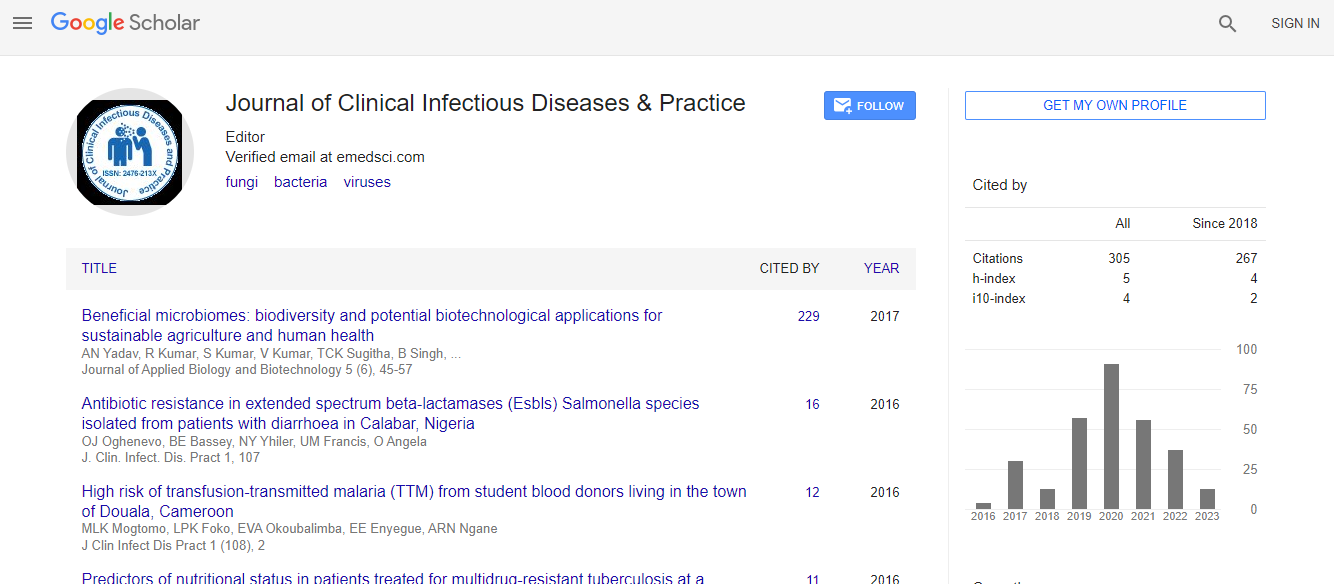Resistance to Voriconazole in HIV/AIDS Patients with Histoplasmosis Treated with Fluconazole
*Corresponding Author:
Copyright: © 2021 . This is an open-access article distributed under the terms of the Creative Commons Attribution License, which permits unrestricted use, distribution, and reproduction in any medium, provided the original author and source are credited.
Abstract
Background: Voriconazole is often used as an alternative to itraconazole in patients with histoplasmosis
because of intolerance or drug interactions to itraconazole. A recent retrospective study showed mortality to be
higher in patients treated with voriconazole. Other studies have shown higher MICs to voriconazole than
itraconazole raising concern about its effectiveness for treatment of histoplasmosis.
Methods: Primary and failure isolates from 17 patients with HIV/AIDS treated with fluconazole were evaluated for
susceptibility to other triazoles. Primary and failure isolates from one of the patients were subjected to in vitro
induction of resistance to voriconazole.
Results: At least 4-fold increases in MIC occurred to fluconazole in isolates from 10 patients and to voriconazole
in 7 patients. Induction of resistance by in vitro exposure to voriconazole causes significant increase in MIC of
primary and failure isolates.
Conclusion: These findings suggest that higher early mortality in patients treated with voriconazole may be
caused by in vivo increases in MICs induced during treatment with voriconazole.

 Spanish
Spanish  Chinese
Chinese  Russian
Russian  German
German  French
French  Japanese
Japanese  Portuguese
Portuguese  Hindi
Hindi 
